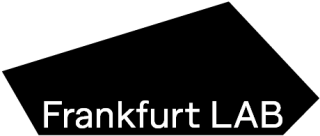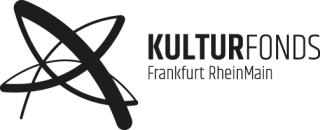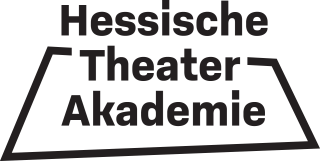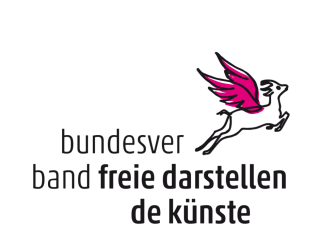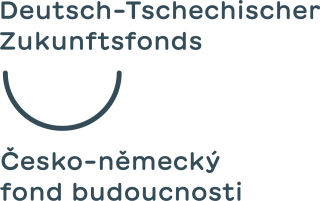Learning with the Ruins
Glossary
Learning with the Ruins
-B-
BALKAN JAZZ CLUB
When I met Ida in Berlin after our premiere, she introduced me to her cousin, who lives there and, surprisingly, had a connection to the ex-boyfriend of our mutual friend Rodrigo. Her cousin shared a story about how they met together in Chicago. Ida’s cousin decided to visit a place called the Balkan Jazz Club, hoping to connect with Bulgarian or Balkan migrant souls in that part of the world.
Rodrigo’s ex-boyfriend happened to work there as a waiter. On his first visit to the club, Ida’s cousin ordered a drink but had to wait for ages before it arrived. Instead of letting the delay annoy him, the long wait became an opportunity to meet several new people. These unexpected encounters and the stretched temporality made him a regular at the Balkan Jazz Club during his time in Chicago.
When I met Ida in Berlin, it was also a moment when we were desperately looking for a production person to help us navigate the flow of the festival. I think the moment Ida’s cousin shared his story, we agreed that Implantieren would become our own version of a Balkan jazz bar. Much later, Mariya Barashka joined as our production person, and she kinda supported this prophecy.
BEING RUINED vs RUINS / BYŤ NA TROSKY vs TROSKY
When we were translating the open call text into our mother tongue languages, I realized that in Slovak, the word for “ruins” can be translated as either ruiny or trosky. The word ruiny evokes the image of old stones left behind after an ancient castle—a more melancholic and romantic picture. On the other hand, trosky conveys something different: fragments, like the remains of a shipwreck or the leftovers of a freshly burned house.
If we want to shift the meaning toward a state of being, such as being “ruined,” we can say zruinovaný, which means “broken” or even “financially broke.” Meanwhile, the phrase byť na trosky translates to “being wasted,” implying a state of complete exhaustion.
Perhaps this distinction also reflects how we think about learning “on the ruins” of a university. We don’t see it as a nostalgic or romantic retro move where one climbs to the top of a rock to gaze at the bright horizon of the future. Instead, we perceive it as a state that allows us to embrace being “wasted”—to learn from exhaustion, where every cell of the body hurts, where moving too quickly becomes a challenge, and where the body can better relate to the pain of other bodies. In this state, ambition takes a backseat, and decision-making is grounded in a shared sense of brokenness.
BROKEN
Fred Moten and Stephano Harney write about decolonizing infrastructures through an embrace of brokenness and friendships. There is something crucial in a way when you admit brokenness, vulnerability with others, you think it’s not functional at the moment but in order to understand it you are forced to kinda accept it, go through it, study it and figure out how to live with old and new cracks with others.
When we first started talking about ruins while shaping the festival’s theme—discussing the idea of a university in ruins—we felt a strong urge to shift the conversation toward brokenness and cracks. While we respect the idea of ruins as a melancholic and even humorous nod to a certain kind of nostalgic German identity, we have to be cautious about the overly romanticized image of the lonely wanderer and the self-centered Malerschwein who thinks he understands but ultimately doesn’t care. That not rotten romanticism feels disturbing.
The image of the broken heart
…so we were working on the poster … omg infinitely. It was never enough. We had to face a longer period of dissatisfaction until the moment when we got finally excited about one version—the one where we added the broken heart image, which later became the festival’s profile image on Instagram.
At one point of the preparation of the festival, we realized we were broke. I think it was after three or four funding rejections in a row, including some we had previously counted on. As a result, both the mood and the mode of the festival shifted to something resembling a Balkan Jazz Bar—improvising, juggling the remaining resources, and still striving to host artists in a way that offered them decent working conditions. The solidarity regime had to be activated much more intensively, but not everyone is willing to step into that regime so spontaneously. Solidarity falters when people fear brokenness. We became students of a constantly cracking infrastructure.
At another point of the preparation of the festival we were breaking up. Delegation and distribution of work weren’t clearly communicated or executed, and the intensity of both the workload and emotional labor kept increasing. Maintaining a sense of generosity between us became harder and harder. We actually went through several breakups and make-ups of these breakups. It sometimes felt like the broken heart symbol was more stigmatizing than supportive.
However, the broken heart image also became part of the festival’s navigation system, serving as a neon symbol on the concrete floor of Campus Bockenheim. In a way, it also acted as a reminder of the fragility of the emotional bonds we strive to preserve and maintain, regardless of the depth of brokenness we might be experiencing.
BROKENNESS
The door to the festival center. The door to the festival center storage. The door to the empty library. The escalator from U4 to the empty library. A bottle. A life. A relationship. Some trust. The cracks on the campus. Micro gardening. Some trust. Some contracts. Cracked open. Open and ready to host. Being hosted by brokenness has given us too much to do and yet through too much doing a lot of this brokenness showed up as livable and relatable. As non-monolithic as any brokenness by definition is. And although inside the cracks of these non-monolithic slates of matter there was not always too much solidarity, agreement or even curiosity, and although non-monolithic today may feel as giving too much space to discourses of conservatism or purity, it is exactly the non-purity of non-monolithic matter that has thrived during these three months, and the other 15 months of preparation. And I cheer for that!
- D -
DEMENTORS
Beings that unlearn being just a mentor as a supervisor - those who hold a space without being the one in the center - to guide, to navigate, to offer space to others for exploration, visibility and vulnerability.
Also known as
A tall, black-cloaked creature with hands that appear decayed.
They drain happiness from people and force them to relive their worst memories.
Harry Potter
“I bring doom into the conversation to show that it is a place to begin, not to end. Once I started thinking of doom as liberatory, I felt free from the dread it constitutes when it looms in the future. How many of us have already met our doom and then had to get out of bed and go on? How many groups of people have had their worlds end, keep ending, and still they found ways to cook for each other? How privileged are you if you first require hope in order to act? What about those where hope was a luxury they couldn’t afford, and still they wrote books, they made music, they sang? They keep singing.”
Johanna Hedva
DON’T REDUCE ME TO A CURTAIN
A phrase spoken on the phone by Felix Grosse Lohman in a tense conversation about budget issues connected to Material für Alle’s promise to build a shelf and provide a sofa and a bench for the festival center. The honorarium in question became a point of contention when it was unclear whether the festival’s agreement would also include a curtain that was initially offered, as its inclusion hinged on whether it could be bleached. Once it was confirmed that bleaching was possible, and the festival decided to include the curtain in the full payment without any reduction, Felix raised an unexpected issue. On the very day of the bleaching operation, he declared that the curtain was not actually his and insisted that it be returned to him the same night, skipping further discussion about additional costs.
DUNGEON DEPARTMENT
Dungeons were once dark, underground chambers in old punishment systems, where, in the early modern era, the Enlightenment tortured its opponents—heretics, witches, and deviant bodies. Today, the term, often linked to a historically inaccurate medieval period, refers to the imaginary caves and settings of fantasy cultures and role-playing games. More importantly, it describes the semi-hidden spaces of BDSM culture, where intimate fantasies and the consensual exploration of pleasure and pain take place.
The practices, aesthetics, and ethics of the dungeon are intriguing because, unlike the visible practices of theater or academia, they are excluded from public view. These activities do not occur before an audience, and those who enter are not just observers or thinkers. To step into a dungeon is to leave the public sphere and join a close-knit community. A safeword is sometimes necessary, not as a sign of inherent danger, but as a reminder that trust is crucial for play to happen.
Darkness, invisibility, opacity, magic, the body, queerness, erotics, ecstasy, intimacy, the inseparability of pain and pleasure, body horror, and body fantasies.
- F -
FIELD DEPARTMENT
The Latin word “Campus” originally referred to the areas of universities where students moved between buildings through parks, carrying their books and also residing there. However, it soon came to denote neoliberal and sometimes private universities, which, on their campuses, established their own rules and could keep others out. Eventually, it came to describe corporate campus complexes that offer amenities to their employees, who must work there, creating a self-contained environment reminiscent of New England university towns.
This is quite different from the original meaning: in Latin, “Campus” simply referred to a field or an open space previously used for agriculture, not enclosed by walls but situated outside the city walls. These areas were used for storage, games, sports, military exercises, vegetable cultivation, and festivals. Unlike in the city, where foreign cults’ temples were prohibited, such temples could be built in these open spaces.
Using the word “Field” instead of “Campus” carries a promise that the exclusionary walls of the university may become porous or crumble, allowing people to walk over the remnants of the university—where perhaps new plants are growing—without necessarily knowing that it was once a university. It suggests that something new can emerge from these remnants, something we may not yet understand.
Coproduction, permeability, migration, exchange, crowds, festivals, inclusion, gardening, cohabitation, camping, starting anew, worlding, fictioning, weather, ecologies.
-G-
GENEROSITY SCORE
A score where you accept others’ opinions with generosity, create space to truly listen, and find room for your own genuine reaction.
This approach was introduced during a session with Valentina Desideri, one of the guests in the pre-festival lecture series “Learning to Learn.” Valentina proposed dedicating the session to a study on Palestine. We were invited to share personal opinions and experiences about the ongoing genocide in Palestine, guided by the principles of the generosity score. Later, through an exercise in fake healing, we collectively mediated the message: “how to move out of paralysis.”
Before we entered the circle, two students left the room.
After the session, we went to lunch at an Israeli falafel place, where we noticed a sticker on the cashier counter that read Zionist Antifa. Upon seeing this, Valentina left the establishment.
-H-
HANGING OUT DEPARTMENT
.
HESSISCHE MYSTERIUM
Also known as the Hessian Ministry, an institution that at one point began acting in unpredictable and surprising ways, blocking decisions that had previously been agreed upon. From its position of power, it introduced rules that were easily applicable within its own structure but significantly complicated the lives of applicants dependent on the funding it distributes.
HYPOGEUM
Greek hypógeion, from hypo “under” and gẽ “earth”, “that which lies under the earth”
Originally, the hypogeum meant a cellar or vault, associated with pagan burial cults. It became a term for the understage of the theater as the hypogeum of the Colosseum in Rome, a complicated, widely branching labyrinth of corridors, trapdoors and pulleys through which gladiators as well as wild animals could suddenly and ghostly appear before the eyes of the audience.
As a cellar, the Hypogeum is therefore a dungeon, but one that lies directly beneath the upper world, designed to create an effect for the stage above. And at the same time, a barrow-like vault that hides the work, people and machines necessary for the illusion of theater from the audience’s eyes.
We realized that the art library we wanted to use for the festival is actually a theater with an unconventional arrangement of hypogeum and stage when we travelled to Tokyo to prepare for the festival and visited Chim↑Pom’s exhibition in the former Ohio House in the center of the Shinjuku entertainment district. The artist group transformed the building, which looks like a crimson medieval European castle, with the central idea that the whole old and abandoned Love Hotel is a kind of hypogeum, for a stage without an audience on the roof of the building. We entered the building through a hole in a dirty side alley. From the actual basement to the roof, the floors were broken through in the middle of the building, and a spotlight beamed into the sky from the very bottom. in some rooms, videos were shown of dancers dancing on a pole on the roof of the building. As a visitor, you could walk through the entire labyrinth and were constantly in the hypogeum of Shinjuku, the understage of the city of Tokyo.
If one looks at the art library as a theater building, one notices that the building is not divided into a stage and an auditorium, but horizontally into two parts. It consists of a single, large, bright room at the top, which is shielded from the outside world and into which light falls from above through the roof, and a first floor with relatively smaller rooms and windows through which one can look in from outside. As if one had cut off the entire auditorium like we know it from a classical theater, the audience and performers have to share the same space. But what becomes visible now in this theater building the art library is, is another distinction that is often obscured by the first: namely that between the lower and upper stage. The distinction between performance and presentation and all the work that normally has to disappear in the dark for theater to happen: daily discussions, administration, plenary, research, community work, care work, learning, gossiping while dish washing and cooking. The distinction, in other words, between the two rhythms of theater: the everyday repetition of practices and activities that keep things alive and hidden, and the festive repetition of performances, holidays and festivals.
This makes the art library as if it were built for a theater that is needed now. A theater that opens up its innards and its hypogeum. A theater where you can look through the windows into the understage and come in to join in. A theater that explores anew how publics can be created in the crisis of the public sphere. That simultaneously invites you to research, cook, think, sketch, try out, take care, do neighborhood work, and also invites you to come and see how it is performed.
No matter what role you take, you have to pass through the labyrith of the understage to appear in the brigh light of the upper stage, and whether as a performer or a visitor, you share the same wide stairs that lead up.
-P-
PARTICIPATORY TURN
old news
PERSIAN DRAMATURGY
The Gatherings of Implantieren ‘24 follow the “Persian dramaturgy”
More than 30 years ago in freshly Post-Socialist Bulgaria, advised by her granddad, Ida read Gore Vidal’s epic historical fiction novel Creation, in which a fictional Persian diplomat from the 6th-5th century BCE, travels the world comparing different political and religious beliefs. Along the way, he meets renowned philosophers like Zoroaster, Socrates, and the Buddha. Despite his strong Persian identity, Cyrus is half-Greek through his mother. It is in that book that Ida read about a Persian procedure that stayed with her till today and shared in a conversation with Nargess, Zuzana and Tilman: The state wisemen of Ancient Persia had the following way to find the right decision in three days. They would discuss one day and write down their first decision. On the second day they would drink a lot of ”soma” and continue discussing until they reach their second decision on the same problem. Then they would go to sleep, wake up on the third day with a hangover, get together and reach their final decision on the matter.
It turned out that this was not known to Nargess and it might very well be a fictional procedure imagined by the author, but still we found that story in support of our desire to create gatherings in which artists and audience experience intensified times together.
PLANT IN IMPLANTIEREN
One of the images that emerged during the workshop with Katherine Ball—a guest in the pre-festival lecture series “Learning to Learn”—was that of Campus Bockenheim overtaken by wild plants. A similar image was later brought up by Mareike Chris-Müller, a former student of Goethe University and now a social worker at Lebenshilfe Frankfurt. After visiting the festival center for the first time with a group of people with disabilities from Lebenshilfe, she was thrilled by the actual emptiness of the campus and the wild plants growing there.
PRE - TRUTH
We are living, as you can constantly read in the news and sometimes in the FAZ, in a time of transformation. Because changes are mysterious, this is a mysterious time. Change is not only difficult to imagine. How shall one imagine what not yet is? Probably it is also the perceived increase in the experience of change that withdraws the foundation from our fixed preconceptions of truth. Changes turn our well-established distinctions between “reality” and “non-reality” upside down through the peculiar experience of pre-truth.
We know the ultimate test from fairy tales: if you can touch something, then it exists. If you touch it and it glitters and dissolves into smoke, then it doesn’t exist. It was an illusion. But the very transformations we are undergoing show that it is not as simple as that, or exactly the other way around. For example, the transformation from fossil fuel to sustainable energy. What just worked and still works because you can touch it, it gets you from A to B and creates jobs is something that no longer works, but is instead an illusion that is lulling entire societies. (Precisely because it still produces wealth.) The reality, on the other hand, lies in the dark and has yet to be invented.
Now it is easy, whether consciously as a strategy or unconsciously, to exploit this confusion. It’s easier to make fun of the fact that nobody is driving electric cars when nobody is driving electric cars than to acknowledge that what is currently working is not working.
Take Eva Maria Magel from the FAZ, for example, who attended the opening of Implantieren, a summer party with speeches, DJs and a bar, at the beginning of the three-month festival, and who, like the whole idea of the festival, obviously didn’t like it. After the first day of the three-month festival, she wrote in the FAZ, without having attended a single other event, that the attempt to build a festival community by making diverse groups part of collaborative artistic processes had failed. The reason: there was too little publicity at the opening and apparently only the friends of the artists. In her opinion, the public can stay away from the festival, because the collaboration with various groups does not appeal to them anyway and they should therefore stay at home.
Now of course it’s great that the FAZ knows what the public is and also nice that Ms. Magel is so helpful in building up the public that she criticizes for not being there. But as one of Germany’s biggest daily newspapers, it could also be that it has either not even noticed the change in the public sphere and how it is changing our political culture and leading to an increasingly divided society, or that the FAZ itself is simply so scarred by existential fear that it has no choice but to pursue transformation denial. According to the motto: We know what the public sphere is because it has always existed and it looks like our readers (not like the “diverse”, as she wrote” friends of the artists). And if there is no audience at the beginning of a festival that lasts three months, then there is no audience.
What’s also funny is that as a theater critic one should actually understand the problem: because what is the decision that the main character has to make in a very classical drama, just like the author of the drama herself? Namely: is it a tragedy or a comedy? Comedy: the character realizes that everything is different than she thought. She is destroyed by it, but at least there is a flash of truth. Or else: she doesn’t recognize it. (Or doesn’t want to recognize it) Nothing changes and the audience is amused by the ambiguous echo chamber in which the protagonist makes herself at home.
Theater has always had to do with the public. Not only is it public (as it still is in Germany, because it is also state-funded here) and public affairs are negotiated publicly in the theater. (See the boom in identity questioning in contemporary theater). The public sphere is actually only created by people publicly participating in the ritual of the theater and publicly presenting themselves to others as the public.
And what is tragic or even funny is that the FAZ in particular is unwilling to see that this public sphere never existed in this way - or if it did, then it certainly no longer functions in this way today. Not only because the public space is not equally public for everyone. At the Implantieren Festival before last, artists were attacked in public spaces because of the color of their skin. At the current festival, artists didn’t feel able to perform in the public space of the KOZ because people they feel connected to were kicked out of the place. The public sphere is also changing because it is being mediatized differently: What if the one public sphere is no longer created by TV or the daily newspaper, but when social networks and gaming platforms generate smaller groups, turn them into players and address people as “friend” groups? And what if the ways in which we identify ourselves (we are not only made of flesh and blood but also of inner and outer self-images) change, but paradoxically the fading image of the general citizen returns in the image of the male nationalist?
The theater is old and this invites us to impose the supposedly familiar idea of the public on the theater in general. But if the culture of our public sphere, which was shaped visually, is changing? Where else should we experiment to find out how it can be different than in a festival that has no established house and can redefine its conditions with each edition?
-R-
RUIN AS RESOURCE
Because the university was suddenly understood as a resource and had to behave as such, it was ruined. Absurdly enough, it was precisely the ruin—its dysfunctionality, its negligence, its out-of-time quality, the dustiness experienced within it, the paternoster, the inertia of its institution, the yawning emptiness of overcrowded seminar rooms where condensation dripped down windows that could no longer be opened—that enabled it to function. The computers were always a generation too old. Books fell apart but were meticulously kept alive. Everything fell to pieces but was held together in a ghostly way. It was precisely this negligence and dirtiness that had been its resource, before the university had to be made “fit” for something.
But since the university had to be understood as a resource and “fit” for something, it no longer functions. Paradoxically, it has lost its hidden resource of brokenness. (Or paradoxically, it was precisely in being threatened with the removal of its resources, which allowed it to maintain its semi-aliveness, that it was forced to abandon its ruin-like quality.)
Its brokenness had corresponded with the kind of knowledge that was sought within it—knowledge that is not a resource but rather something that is not existing, or that exists only as a crack, a gap, or opens up over the abyss between knowing and not-knowing.
While it previously seemed to live in a ghostly way even though it was broken, the university is now truly dead. But this deadness is not visible, like a zombie falling apart, but instead appears sleek and unbreakable. And while everything around it is breaking down and decaying, the university stands there, incapable of solidarity with all that can get broken, which could very well be a form of knowledge, and possibly the only one.
-S-
SABOTAGE THROUGH MICRO GARDENING
Planting seeds of wild grasses into the unnoticed cracks, hidden soil lines, and overlooked spaces of concrete landscapes, letting nature reclaim its place.
SHARED PRACTICE
Implantieren 2022/23 was a festival of shared practices. No pieces were shown that you could watch as usual, but a) artists and others shared activities, b) over a longer period of time with c) the side effect that new relationships would grow or existing communities would be strengthened through doing things together.
The form of the shared practice should therefore not be confused with skill sharing, nor should it be equated with processes, nor necessarily with workshops. It is more comparable to the regular attendance of a sports club, in which one pursues an activity together with friends or strangers.
The format was created under the impression of a group of Frankfurt artists that the expenditure involved in producing pieces often has the opposite effect to what they promise. As art, they should, even if symbolically, give hope for change. But their production leaves no room to do what seems important, care work, nurturing communities or friendships. It leaves no room for learning or doing what you have always wanted to do. On the contrary, going to the rehearsal stage and devoting all your time and energy to a product that will be released in the future tears apart the relationships you are embedded in because it leaves no time to take care of them now.
SHAKY
After the countdown comes the turbulence of heading to space, fighting gravity and atmospheric densities. After the team formation comes the shake of collecting the needed elements, fighting uncertainty and atmospheric densities. A project where nothing is projectable. Neither the money, nor the spaces, the least the interest.
-T-
TIER IN IMPLANTIEREN
Ghost Chickens on campus
Ghost Cats in studios
Cockroaches
THE TRAM
The 17.
TRANSFORMATION DENIAL
The unwillingness to acknowledge a crisis and change, or the rhetorical strategy of ignoring it, and instead deriding Pre-Truth as non-existent, or its phenomena as non-functioning.
TWO RHYTHMS
There are two types of repetitions in theater.
A festival returns every year or two, sometimes every twelve years, as in the case of the Kumbh Mela on the Ganges. People come together to celebrate the return or the remembering or the repeated remembrance of something that still has meaning. Or to get together, at least once a year, and say, “Oh, the year has gone by quickly.” People get together, and the reason why they get together, even if it is the least important, is always important: religious foundations, national holidays, the birth of the nation or the continuation of tradition.
But then there are repetitions, other rhythms that people don’t dress up for because they are more hidden and don’t stand out from everyday life, but rather sink into it. This is the repetition of cooking rice every day because you have to eat, and the removal of the dirt that inevitably accumulates again and again. Repetitive jour fixes, calling again because the AStA still hasn’t confirmed the ballroom, repetitions of practicing, exercising, training. In other words, the rhythm of daily habits and routines, which are also the hidden rhythm of the theater.
Unlike the festive repetitions in the theater, they never make a big show of themselves and claim to deliver something completely surprising and new. You do what is already there, you learn something that you want to be able to do, you maintain something. But surprisingly, something often arises in them, incidentally, without anyone speculating on it, something that nobody would have expected.
Implantieren 2022/23 attempted to give form to these rhythms over a period of six months through the form of shared practice. With three months and projects learning on the ruins of the university and three assembly weekends where people come together, Implantieren 2024 attempts to be a festival of both rhythms.
-W-
WATER INFRASTRUCTURE
When we still believed that we could hold the festival in the Art Library, it became known that when the university vacated the building, they not only turned off the water, but presumably, in order to make any further use more difficult, they turned it off in such a way that the water supply could not be restored again.
When you are used to water spreading through thousands of pipes under pressure – much like in a body, which is filled with veins, or a tree, which is permeated with countless capillaries – reaching every corner of our city, virtually flooding it, then you are surprised when a building is actually dry. How are you supposed to use the bathroom? How are you supposed to wash the champagne glasses? How are you supposed to have a festival there?
Now the Art Library has water. Or at least it has a large roof, and with that the possibility of collecting water. And so our idea grew to invite Christine Ball, a specialist in water infrastructure at the Floating University in Berlin, to bring the water back through a rainwater harvesting system.
Months later, the negotiations had come to nothing, and it was clear that our hope of holding the festival in the Art Library had failed. Nevertheless, Christine Ball visited us, and we walked around the campus with her. We not only looked at the roof of the library from the outside but also at the struggling urban gardening project of the Open House of Cultures, where the tomatoes and vegetables had dried out. Since the university had shut off the water not only in the Art Library but across the entire campus, all the water had to be painstakingly brought from the student house.
While we were walking around, it became clear to us that both things were probably related: the impossibility of utilizing the vacant spaces here and the fact that there is no water.
There is an abundance of empty space, and there is an abundance of water coming from the sky. But the infrastructure – from the buildings to the institutions – is built in such a way that none of it is accessible.
Similar to the concrete basin on which the Floating University in Berlin is built, the concrete area of the Bockenheim campus is a water catchment basin – but one that does not keep the water and does not enable a hybrid ecosystem like in Berlin. On the contrary, it wastes what it catches. It directs the water directly into the sewer system. And by doing so, it interrupts what plants and vegetation have been doing for as long as they have existed: holding the water up. The water that would simply flow down into the ocean is held in place by a living network, which makes the earth habitable.
The water collecting basin of the campus however, creates a gap in this network, similar to the police or the university administration which prevents anyone from settling there by blocking the structures and solidarity networks of the city’s residents.
And this gap that is torn in these networks continues to contribute to making places elsewhere uninhabitable. For example, when it rains and the diverted water floods the banks downstream. Or it contributes to the fact that, despite enough rain falling in Frankfurt, water has to be fetched from far away, such as from the Vogelsberg, where springs dry up, and agriculture becomes more difficult.
If one were to occupy the Art Library, it would be in solidarity not only with the city, but with this entire living network. Not only with rainwater collection systems on the roof. The drains must be sealed, with tar scraped from the cracks between the concrete slabs. Puddles and evaporation zones must be created, where reeds purify the greywater. And artificial karst holes should be broken through the concrete, leading to a cool underground lake, where the underground garage once was.
-
The glossary ‘Learning with the Ruins’ will grow over the course of the festival
with contributions from the festival team and others.



